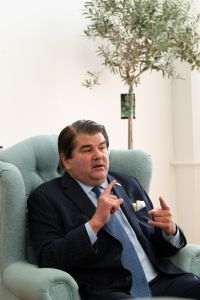Great expectations are not always met. This holds true for the latest climate action summit. The adoption last week at COP28 in Dubai of a global compromise agreement that paves the way for a gradual phase-out of fossil fuels, the main culprits of global warming, was hailed by numerous leaders, but climate scientists are much more skeptical about it. While the "absence of an agreement on the gradual elimination of fossil fuels" has been "devastating so far," the approved text now is "not quite convincing," said Michael Mann, a climatologist and geophysicist at the University of Pennsylvania, USA. "It's like promising your doctor you'll give up doughnuts when you're diagnosed with diabetes," the expert summarized for AFP, noting that the agreement does not include any specific date for phasing out fossil fuels and does not indicate the extent of measures to be taken by states. Adopted by consensus, the text is seen by many delegates and NGOs as an imperfect compromise. It does not directly call for abandoning fossil fuels, disappointing about a hundred states that demanded it, and it contains loopholes for countries that want to continue exploiting their hydrocarbon reserves. The agreement of the 28th UN Climate Conference "is hailed as a compromise, but we need to be very clear about what was compromised," insisted Friederike Otto, a climate science specialist, an expert in analyzing the impact of climate change on specific extreme weather events. "The short-term financial interests of a few have once again taken precedence over the health, life, and livelihoods of the majority of people on this planet," she criticized. "With all these vague verbs, these empty promises in the final text, millions of people will be on the front lines of climate change, and many of them will die," Friederike Otto added. A bleak conclusion is shared by Kevin Anderson, who teaches climate change at the University of Manchester, UK. "Physicists don't care" about the applause of leaders, he said, estimating that this COP28 compromise "announces the death" of the goal to limit global warming to +1.5 degrees Celsius compared to pre-industrial levels. If emissions remain at current levels, humanity has only between five and eight years until exceeding the "carbon budget" set to keep global warming at 1.5 degrees Celsius, the most ambitious goal of the Paris Agreement. Even if emissions start to decline in 2024, fossil fuels should be abandoned by 2040, emphasized Anderson, not by 2050, as mentioned in the carbon neutrality agreement, a "fraudulent language element," in the specialist's opinion. The less ambitious goal of +2 degrees Celsius, with much more serious consequences, is increasingly distant. Thus, "COP28's inability to make significant progress while the window of opportunity for reducing warming is shrinking is a major source of concern," said climatologist Michael Mann. However, "we must not end them," he pleaded. "We need to continue organizing COPs. They are the only multilateral framework for negotiating global climate policies," Mann said. According to Johan Rockstrom, a professor of environmental science and director of the Potsdam Institute in Germany, the text adopted at COP28 "clearly shows all financial institutions, businesses, and societies that it is (... ) the beginning of the end of the global economy based on fossil fuels."
Going further, Michael Mann called for a reform of the functioning of COPs, for example, so that decisions could be approved by a majority of countries, despite the objections of fossil fuel-producing nations, or even banning leaders from fossil fuel-producing countries from chairing future summits.
















































